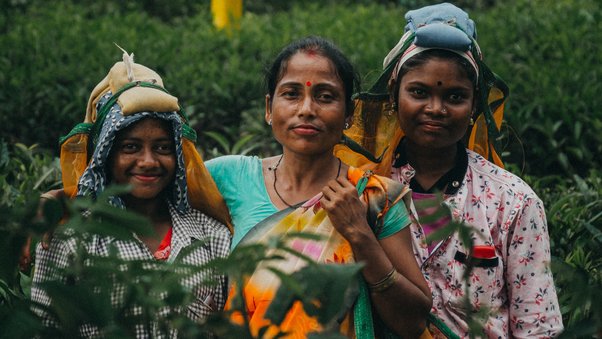“India is ahead of Bangladesh in women’s education and empowerment, massive changes and progress in the field of women’s education and empowerment has been noticed in his own country in recent years.”
— Dr Abdun Noor, well-known Bangladeshi economist and former senior staff of the World Bank
India and Bangladesh have become role models of women empowerment for the rest of the world. This was according to well-known Bangladeshi economist and former senior staff of the World Bank Dr. Abdun Noor who believes that women in both countries were now in leadership positions in every sphere of national and social lives, reported awazthevoice.in.
Talking with Awaz-The Voice in Guwahati recently, Dr. Noor said while India was ahead of Bangladesh in women’s education and empowerment, massive changes and progress in the field of women’s education and empowerment had been noticed in his own country in recent years.
“Despite being a Muslim majority nation Bangladesh is trying to break many glass ceilings by inducting qualified women in the judiciary as judges, armed as generals and police services, administrative as secretaries, diplomatic assignments as ambassadors and entrepreneurship,” Dr. Noor said.
In terms of political empowerment of women, Dr Noor said, Bangladesh is one of the few countries including India of the world that has a woman Prime Minister, a woman Speaker of Parliament, several cabinet ministers, and female parliamentarians.
-
According to Dr. Noor rapid spread of girl education in Bangladesh is one of the prime reasons behind women’s empowerment in the country. Since the 1980s, secondary school enrolments for girls in Bangladesh increased from 39 percent in 1998 to 67 percent in 2017
-
“When I was working with the World Bank in the early eighties the bank introduced initiatives like introducing toilets in schools, uniforms, scholarships for girls, and creating bank accounts to inspire students to go to schools. Our initiatives proved effective and dropout rates among girl students drastically declined.”
— Dr. Noor said
The 83-year-old Noor has been an immigrant for most of his life. In 1973, he was working as the Head of the Education and Human Resource Department in the Planning Commission for the first fifth annual plan of independent Bangladesh. Besides, since 1970, he has been working with the World Bank in Washington where he lives.
Dr. Noor’s writings have been widespread in the development of the society and culture of Bengal at the national and international levels.
In 2007 Dr. Noor wrote about a lost Ahom Princess in his novel titled Bisholito Samay (Uncertain Times) depicting her journey to Dhaka in Bangladesh after getting married to Mughal King Aurangzeb’s third son Ajam Shah.
According to Dr. Noor rapid spread of girl education in Bangladesh is one of the prime reasons behind women’s empowerment in the country. Since the 1980s, secondary school enrolments for girls in Bangladesh increased from 39 percent in 1998 to 67 percent in 2017. “When I was working with the World Bank in the early eighties the bank introduced initiatives like introducing toilets in schools, uniforms, scholarships for girls, and creating bank accounts to inspire students to go to schools. Our initiatives proved effective and dropout rates among girl students drastically declined,” Dr. Noor said.
***************************************************************
Readers
These are extraordinary times. All of us have to rely on high-impact, trustworthy journalism. And this is especially true of the Indian Diaspora. Members of the Indian community overseas cannot be fed with inaccurate news.
Pravasi Samwad is a venture that has no shareholders. It is the result of an impassioned initiative of a handful of Indian journalists spread around the world. We have taken the small step forward with the pledge to provide news with accuracy, free from political and commercial influence. Our aim is to keep you, our readers, informed about developments at ‘home’ and across the world that affect you.
Please help us to keep our journalism independent and free.
In these difficult times, to run a news website requires finances. While every contribution, big or small, will makes a difference, we request our readers to put us in touch with advertisers worldwide. It will be a great help.
For more information: pravasisamwad00@gmail.com



